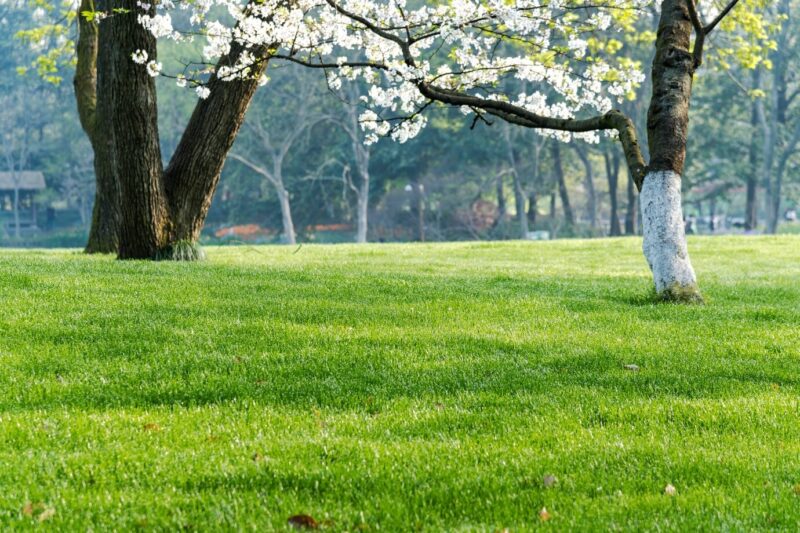Creating a peaceful, inviting outdoor retreat in your backyard is often about finding the right balance of nature and function. One of the best ways to transform your yard into a cool, tranquil space is by adding trees that offer shade and aesthetic appeal.
However, not all trees are ideal for this purpose. Factors such as growth rate, canopy density, and adaptability to different soil types play a vital role when choosing the right ones.
In this guide, the best options will be discussed so you can build the perfect oasis.
Key Points:
- Choosing the right tree for your space.
- Importance of canopy size and density.
- Tree adaptability to different climates and soil.
- Fast-growing trees versus long-term investment trees.
- Benefits of native trees for local ecosystems.
1. Maple Trees: The Versatile Shading Option
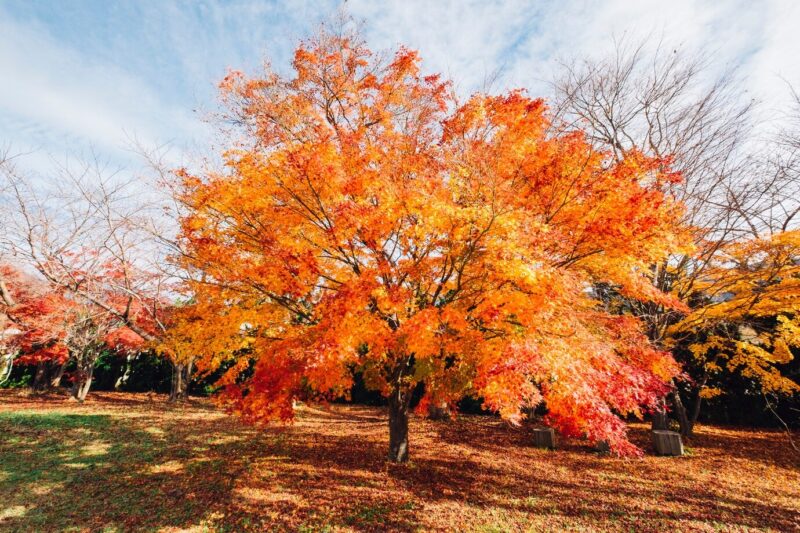
Maple trees stand out as one of the best choices for anyone looking to add a beautiful and functional element to their outdoor space. With their wide, spreading branches, they are known for creating a large canopy that brings natural coolness to a backyard. Maple trees adapt to a range of climates and soils, making them a versatile choice for many regions.
The most popular varieties include the Red Maple and Sugar Maple. Red Maples grow relatively fast and have vibrant autumn colors, while Sugar Maples are known for their dense shade and longevity. Both options are reliable, long-lasting, and provide ample coverage during hot months. Whether you prioritize beauty or practicality, you won’t go wrong with a Maple tree.
For more tree ideas, visit treenurseryco.com and explore a wide selection of native plants, including trees, that can turn any garden into a serene and shaded oasis.
2. Oak Trees: Timeless and Sturdy
Oak trees have been a reliable source of shade for centuries. Their wide canopies and strong branches make them one of the best investments for long-term yard development. Oaks grow slowly compared to other options, but their durability and size make them worth the wait.
Quercus robur (English Oak) is a solid option, growing to over 40 feet with a wide-spreading crown. This variety thrives in various soils and climates, making it a solid choice for many homeowners.
If you are looking for a tree that stands the test of time, oaks should be high on your list. Although slower-growing, their majestic appearance and reliable shade make them invaluable in any large outdoor space.
3. Elm Trees: Fast-Growing with Ample Shade
Elm trees offer a perfect solution for anyone looking for quick results. Ulmus americana (American Elm) grows at a faster rate than many other trees, providing shade in a short time. It has a vase-like structure, with arching branches that create a dense canopy. The American Elm thrives in various climates and is a good choice for urban or suburban settings.
Due to its ability to grow quickly and adapt to different environments, the Elm is ideal for those looking to transform their outdoor space rapidly. However, like any tree, proper care and maintenance are essential for its long-term health.
4. Dogwood Trees: Perfect for Smaller Spaces
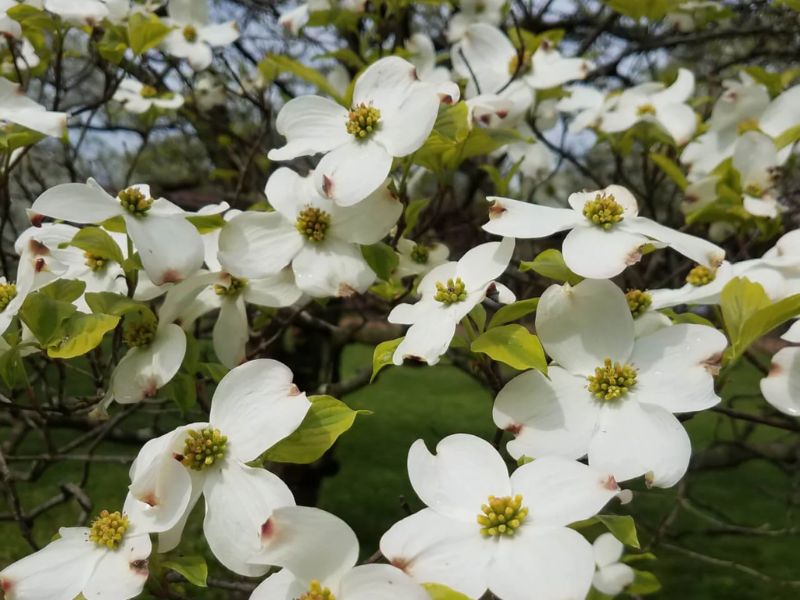
Dogwood trees provide a great option for those with limited space but still want to enjoy some natural coverage. Unlike the larger trees mentioned, Dogwoods have a more compact form, making them perfect for smaller backyards. Cornus florida (Flowering Dogwood) is well-known for its beautiful flowers and moderate canopy.
Dogwoods not only provide shade but also bring visual appeal with their colorful blooms in the spring. They are easy to maintain, grow relatively fast, and adapt well to various soils. Dogwoods may not offer as much coverage as Maples or Oaks, but their ornamental value is unmatched.
5. Tulip Poplar: Tall and Elegant
The Tulip Poplar (Liriodendron tulipifera) is another great choice for those looking to add height and elegance to their space. Known for growing fast and reaching impressive heights of up to 90 feet, it provides a large, triangular canopy that blocks sunlight effectively.
Tulip Poplars thrive in well-drained soils and grow best in regions with plenty of rainfall. Their leaves have a unique tulip shape, which adds to their charm. If your goal is to quickly transform your outdoor area into a shaded retreat, Tulip Poplars may be the perfect solution.
6. Crape Myrtle: Beauty and Functionality Combined
If aesthetics are just as important as functionality, Crape Myrtles are a solid choice. With vibrant flowers and lush foliage, they are excellent for providing dappled shade, especially in smaller spaces. While Crape Myrtles don’t grow as large as Oaks or Maples, their beauty and moderate coverage make them a versatile option.
Lagerstroemia indica (Crape Myrtle) grows well in warmer climates and is often chosen for its colorful blooms that last through summer. It is easy to care for and relatively resistant to pests, which makes it a low-maintenance option for those who want both shade and beauty.
7. Ginkgo Trees: A Unique and Hardy Option
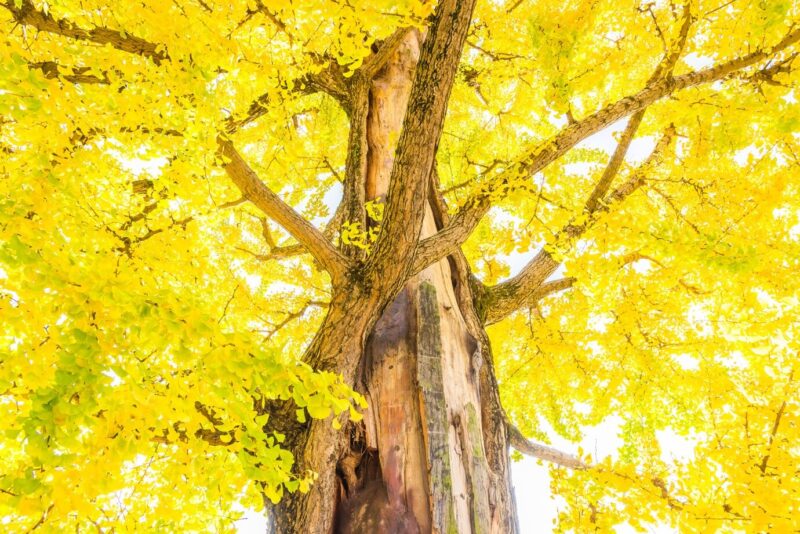
Ginkgo biloba is one of the oldest tree species in the world. Its fan-shaped leaves create light shade, making it ideal for areas where complete coverage isn’t necessary. Ginkgos are hardy trees, tolerant of pollution, and adaptable to various soil types.
Their resilience makes them a great choice for urban environments where other trees might struggle. Although their canopy is not as dense as other options, the unique shape and adaptability of Ginkgo trees make them a desirable addition to any outdoor space.
8. Willow Trees: Ideal for Damp Areas
Willow trees are perfect for those with water features or moist soil in their outdoor areas. Salix babylonica (Weeping Willow) is known for its graceful, drooping branches that provide ample shade and add a peaceful atmosphere. Willows grow quickly and thrive in wet conditions, making them suitable for areas near ponds or streams.
Their ability to grow fast and their natural beauty make them a perfect choice for larger spaces. Willows need plenty of water, so make sure they are planted in areas where the soil remains consistently moist.
Frequently Asked Questions
1. Which tree provides the fastest shade?
Elm trees grow quickly and provide ample coverage in a relatively short period, making them one of the fastest-growing options.
2. What tree is best for a small backyard?
Dogwood trees are ideal for smaller spaces, as they offer moderate coverage without taking up too much room.
3. Can I plant any tree in any soil type?
Not all trees adapt well to every soil. Maple and Oak trees are more adaptable, while others, like the Willow, require moist soil to thrive.
4. How long does it take for a tree to provide full shade?
Depending on the species, it can take anywhere from 5 to 20 years for a tree to fully mature and provide maximum coverage.
5. Which tree requires the least maintenance?
Ginkgo trees are hardy and require minimal care, making them a great low-maintenance option.
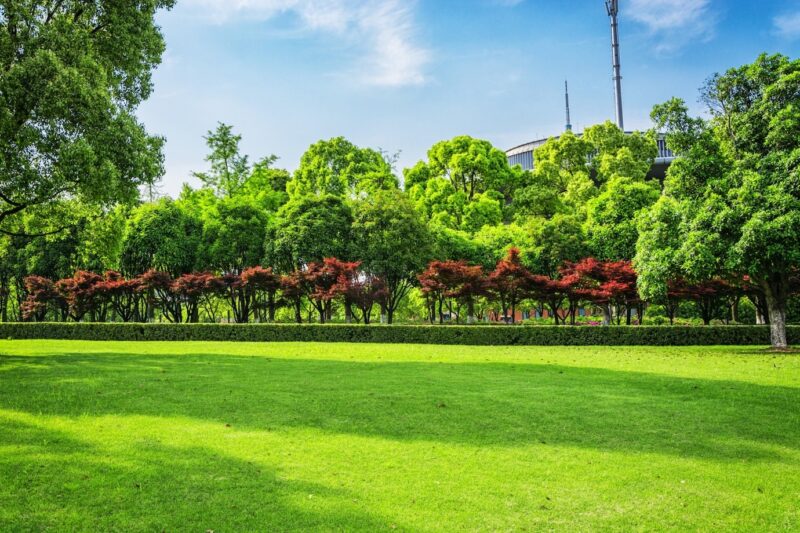
Conclusion
Choosing the right tree for your outdoor space requires a mix of practicality and vision. Whether you need fast-growing solutions like Elm trees or prefer the timelessness of Oaks, each species brings its own unique benefits.
A well-planned outdoor retreat not only provides a cool haven during warm months but also elevates the overall ambiance of the area. From versatile Maples to the elegant Tulip Poplar, the options are plentiful.

